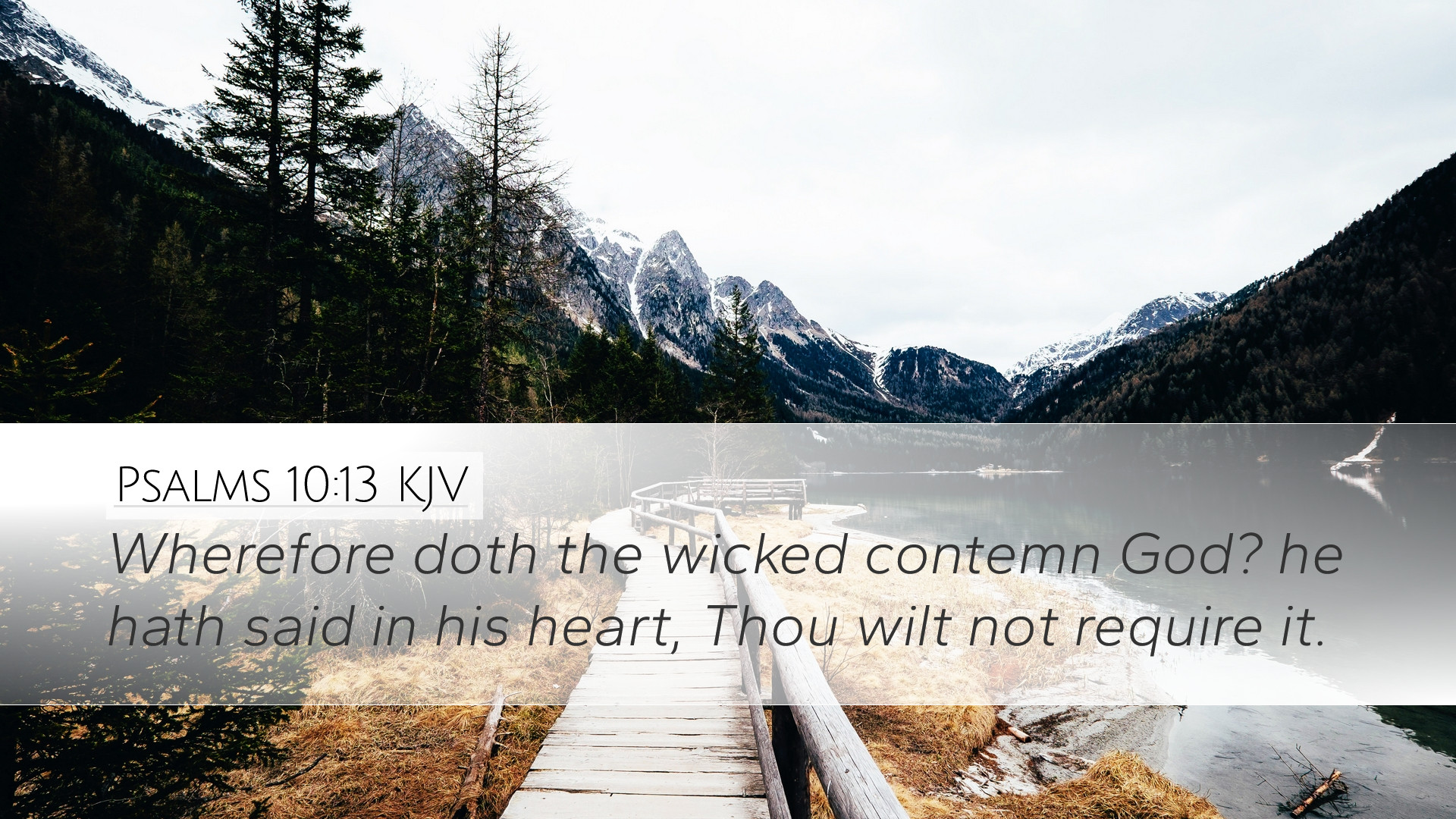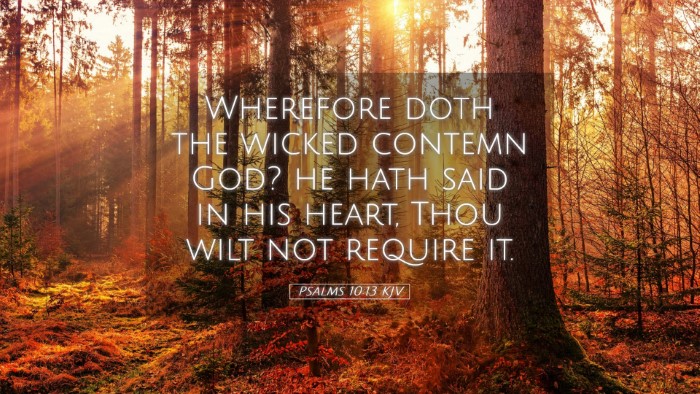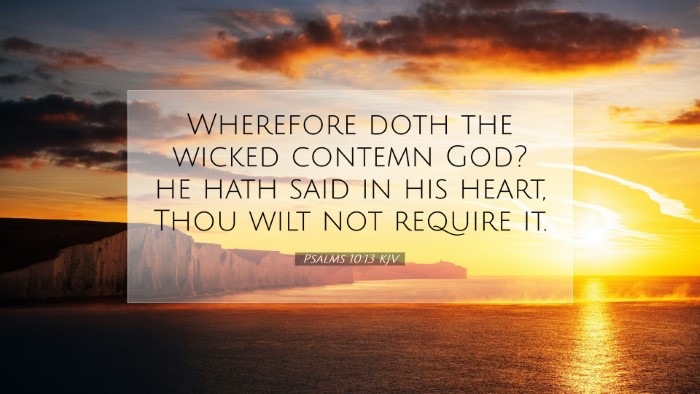Commentary on Psalms 10:13
Bible Verse: "Wherefore doth the wicked contemn God? He hath said in his heart, Thou wilt not require it." (Psalm 10:13)
Introduction
The verse raises profound questions regarding the nature of wickedness and the perception of divine justice. It reflects a deep engagement with the silence of God in the face of evil, a theme prevalent throughout the Psalms.
Contextual Analysis
This Psalm is a lamentation posing questions about God’s perceived distance in times of injustice. It touches on the heart of a righteous sufferer who perceives that the wicked flourish while the righteous suffer.
In the verses leading up to verse 13, the psalmist articulates the vast difference between the lives of the wicked and the just, emphasizing the injustice that often goes unchecked in the world.
Insights from Matthew Henry
Matthew Henry's commentary describes the wicked man's disregard for the divine authority as a hallmark of his character.
- Contempt towards God: The wicked man not only denies God's existence but actively scorns Him, believing there will be no repercussions for his actions.
- Presumptive confidence: In his heart, the wrongdoer assumes that God's judgments will not catch up to him, reflecting a tragic arrogance that blinds him to the reality of divine oversight.
- God’s Silence: This attitude stems from a perceived delay in divine justice; the psalmist wrestles with the troubling notion that God seems indifferent to the plight of the innocent.
Insights from Albert Barnes
Albert Barnes offers a perspective that emphasizes the theological implications of the wicked's attitude towards God.
- Atheism and Practical Impiety: Barnes notes that the question posed highlights a broader issue of atheism, where the wicked's practical denial of God’s existence leads to moral degeneration.
- Questioning God's Justice: He reflects on the idea that such contempt arises when individuals see themselves unaffected by moral law, leading to a false sense of security.
- Human Accountability: The emphasis is on the misunderstanding of God's mercy; though God may seem silent, His justice will ultimately prevail.
Insights from Adam Clarke
Adam Clarke’s commentary provides a deeper look at the psychological state of the wicked person as presented in Psalm 10:13.
- The Heart’s Deception: Clarke notes that the wicked man speaks from his heart, indicating that the internal disposition often leads to external actions that conflict with divine expectation.
- Denial of Divine Accountability: He emphasizes that the wicked think they escape God's scrutiny, but this belief is rooted in a self-deceptive heart.
- Response to Suffering: Clarke points out that this verse can also signify a question for the righteous – to maintain faith in God’s ultimate justice even in silence.
Thematic Elements
In analyzing Psalm 10:13, several themes emerge that resonate throughout Scripture:
- The Nature of Wickedness: A pervasive theme that reflects humanity’s struggle with sin and rebellion against divine authority.
- The Silence of God: A recurring motif in the Psalms, evoking questions about God's presence and intervention amidst human suffering.
- Hope for Justice: Despite the apparent triumph of wickedness, the psalmist ultimately points towards the hope of divine justice, reminding the faithful of God's sovereignty.
Pastoral Applications
For pastors and church leaders, Psalm 10:13 serves as a poignant reminder of several key applications:
- Addressing Doubt: It is crucial to acknowledge the doubts that congregants may have regarding God's justice and timing, providing reassurance through biblical truths.
- Encouragement in Suffering: This verse can be used to comfort those who feel abandoned or oppressed, affirming that God is aware of their plight.
- Encouraging Accountability: Church leaders can stress the importance of living a life accountable to God, highlighting that the fear of the Lord is the beginning of wisdom.
Conclusion
Psalms 10:13 challenges believers to confront the reality of justice and wickeden in the world while maintaining confidence in God's ultimate authority. It serves as an invitation to reflect on one’s own heart and the collective journey of faith amidst trials, reinforcing that God will indeed require an account of all humanity.


